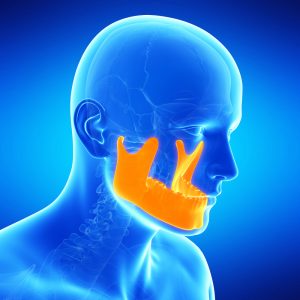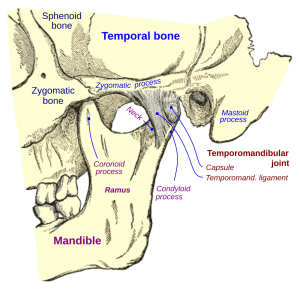"Why does my face hurt?" is a question many people ask when they experience unexpected discomfort or pain in their facial area. Whether it's a sharp, sudden ache or a persistent throbbing sensation, facial pain can be caused by a variety of factors. From sinus issues and dental problems to nerve conditions and migraines, there are numerous potential reasons behind this discomfort. In this article, we’ll explore 10 common causes of facial pain, helping you better understand the underlying issues and when it might be time to seek medical attention.
Key Takeaways
- Facial pain can arise from various causes, including sinus issues, nerve disorders, dental problems, and stress-related tension.
- Conditions like TMJ disorders, trigeminal neuralgia, and sinusitis are common sources of facial discomfort, requiring proper diagnosis and treatment.
- Stress management and lifestyle changes, such as using a mouthguard for bruxism or practicing relaxation techniques, can help alleviate some forms of facial pain.
- Early diagnosis and treatment by specialists like Raleigh Facial Pain are essential in managing chronic facial pain effectively and improving your quality of life.
1. Sinusitis
Sinusitis, or inflammation of the sinus cavities, is one of the most common causes of facial pain. When your sinuses become congested and inflamed due to an infection or allergies, they can create pressure around the forehead, cheeks, and eyes. This pressure leads to pain and tenderness, often worsening when you bend over or move your head. People with chronic sinusitis may experience recurring bouts of facial pain along with other symptoms like nasal congestion, headaches, and a runny nose.
2. Trigeminal Neuralgia
Trigeminal neuralgia is a nerve disorder that affects the trigeminal nerve, which transmits sensations from your face to your brain. This condition causes intense, electric shock-like pain that can be triggered by activities like chewing, talking, or even touching your face. The pain usually affects one side of the face and can be so severe that it interferes with daily activities. While trigeminal neuralgia is relatively rare, it is one of the most painful facial conditions and requires medical attention for effective management.
3. Temporomandibular Joint (TMJ) Disorder
TMJ disorders involve the temporomandibular joint, which connects your jaw to your skull and allows you to open and close your mouth. TMJ problems can cause pain in the jaw, face, and neck, as well as difficulty chewing or speaking. The pain often feels like a dull ache or tenderness in the jaw area, and it may radiate to the temples, ears, or shoulders. TMJ disorders can be caused by teeth grinding (bruxism), jaw misalignment, or trauma to the jaw joint.
4. Dental Problems
Dental issues such as cavities, gum disease, tooth abscesses, or impacted teeth can lead to significant facial pain. The pain often starts in the mouth but can radiate to the jaw, cheeks, and even the ears. Infections in the teeth or gums can cause swelling and tenderness in the surrounding facial tissues, and if left untreated, dental problems can become more severe, leading to chronic pain and complications. Regular dental check-ups and good oral hygiene can help prevent dental-related facial pain.
5. Cluster Headaches
Cluster headaches are a type of severe headache that tends to occur in cycles, or clusters, with periods of intense pain followed by periods of remission. These headaches often cause excruciating pain around one eye or on one side of the head. The affected eye may become red and swollen, and you may experience nasal congestion or runny nose on the same side. The intense facial pain caused by cluster headaches can last for several minutes to hours and often occurs multiple times a day during a cluster period.
6. Migraines
Migraines are a type of headache that can cause intense throbbing pain, often around the temples, forehead, and eyes. Some people also experience facial pain as part of their migraine symptoms. Migraines are typically accompanied by other symptoms such as nausea, vomiting, sensitivity to light and sound, and visual disturbances known as auras. Migraines can be triggered by stress, hormonal changes, certain foods, or environmental factors. Managing migraines often involves identifying triggers and using medication to prevent or reduce the severity of attacks.
7. Teeth Grinding (Bruxism)
Teeth grinding, also known as bruxism, is a condition in which you unconsciously grind or clench your teeth, usually during sleep. Over time, this constant pressure on the teeth and jaw can lead to soreness and facial pain, particularly in the morning when you wake up. Bruxism can also cause headaches, earaches, and jaw disorders like TMJ. A dentist may recommend using a mouthguard at night to protect your teeth and relieve the strain on your jaw muscles.
8. Shingles (Herpes Zoster)
Shingles is caused by the reactivation of the varicella-zoster virus, which also causes chickenpox. It typically affects older adults or people with weakened immune systems. Shingles can cause a painful rash on one side of the face or body. Before the rash appears, people often experience burning, tingling, or shooting pain in the affected area, which can be quite severe. In some cases, the pain persists even after the rash has healed, a condition known as postherpetic neuralgia.
9. Facial Injury or Trauma
Any physical injury to the face, such as a fall, a blow to the face, or an accident, can lead to pain and swelling. Trauma to the face may cause fractures, bruising, or nerve damage, which can result in long-lasting pain and discomfort. Injuries to the jaw, in particular, can lead to TMJ disorders or misalignment, further exacerbating the pain. If you experience severe pain following a facial injury, it's important to seek medical attention to assess the damage and prevent complications.
10. Stress or Tension
Stress can have a significant impact on your physical health, and facial pain is often a result of stress or tension. When you're stressed, you may unknowingly clench your jaw, grind your teeth, or tense the muscles in your face and neck. This can lead to tension headaches, jaw pain, and soreness in the facial muscles. Managing stress through relaxation techniques, exercise, or counseling can help alleviate stress-related facial pain.
Schedule Your Appointment Today
If you’re dealing with persistent facial pain and have been asking yourself, “Why does my face hurt?” it’s essential to seek professional help to identify the root cause of your discomfort. At Raleigh Facial Pain, we specialize in orofacial pain management and chewing system orthopedics to help treat and relieve chronic pain in the muscles, joints, and nerves of the face. Whether your facial pain is caused by TMJ disorders, nerve issues, or sinus problems, our experienced team is here to help you find relief.
Our team will work with you to create a personalized treatment plan that addresses your unique condition, helping you reduce pain and improve your quality of life. Don’t let facial pain hold you back—schedule your appointment with Raleigh Facial Pain today and take the first step towards a pain-free future.
Frequently Asked Questions
Why does my face hurt when I wake up?
Facial pain in the morning is often caused by teeth grinding or clenching during sleep, known as bruxism. This habit puts stress on the jaw muscles and joints, leading to soreness and discomfort when you wake up. TMJ disorders or sinus congestion can also worsen overnight, contributing to facial pain upon waking.
Why does my face hurt after dental work?
After dental work, it’s common to experience facial pain due to inflammation or irritation of the facial tissues and nerves. Procedures like extractions, root canals, or fillings can temporarily strain the surrounding areas, causing discomfort. If the pain persists or worsens, it’s important to consult your dentist to rule out complications like infections.
Why does my face hurt when I have a cold?
When you have a cold, your sinuses can become inflamed and congested, leading to sinusitis. This causes pressure and pain in the forehead, cheeks, and around the eyes. The blocked nasal passages and inflammation in the sinus cavities are responsible for the facial pain that often accompanies a cold.



